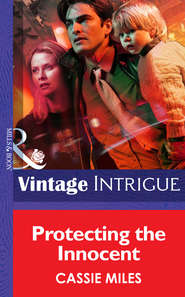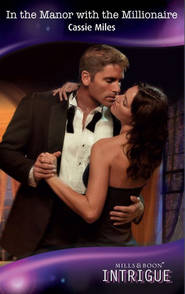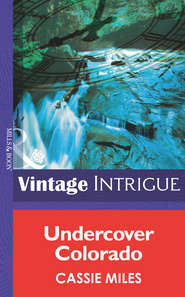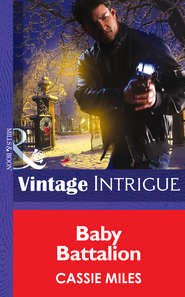По всем вопросам обращайтесь на: info@litportal.ru
(©) 2003-2024.
✖
Not on His Watch
Автор
Год написания книги
2019
Настройки чтения
Размер шрифта
Высота строк
Поля
Natalie sipped her wine and glanced toward Quint. “Surely you don’t want to hear more about this nonsense.”
“Surely, I do.” His gaze was calm, steady and reassuring.
For a moment, she thought he might reach across the table and pat her hand. “All right,” Natalie said. “I’ll tell you what I’ve been thinking about these notes. Then, we change the subject. Agreed?”
They both nodded.
“Because Quantum Industries is the largest distributor of oil in the world, we’re a target for all kinds of hate groups. First, there are the environmentalists.”
“I don’t much care for the tree huggers,” Quint said. “But I thought they were peaceable.”
“Not all of them. There’s one group in particular. An eco-cult based somewhere in southern Illinois. Their leader is a guy named Hutch Greely, and they call themselves the Solar Sons.” She looked toward Whitney. “My sister thinks they’re heroes. You remember my sister, Caroline?”
“The research genius? Isn’t she inventing alternative fuel or something?”
“She’s close to a breakthrough on a hydrogen-combustion engine,” Natalie said. “Last week, she e-mailed me that she’s taking some time off, which isn’t like her at all. I’m afraid she might have joined this Solar Sons cult.”
“Then, they can’t be threatening you,” Whitney said. “Caroline wouldn’t let them.”
“Probably not.” But she wasn’t sure. She and her younger sister had gone through some stormy times.
“How dangerous are the Solar Sons?” Whitney asked.
“They do protests. And they’ve been linked to acts of civil disobedience like spiking trees.” She and Caroline had argued about their tactics. No matter how pure the motivation, the Solar Sons had no right to physically interfere with legitimate businesses. “Of course, they hate Quantum, the big bad oil distributor.”
“Anybody else who hates Quantum?” Whitney asked.
“Several nations in the Middle East who we’re not buying from. And then, there are the U.S. politicians. We’re not real popular with them.”
“But I thought you were flying to Washington on Monday,” Quint said.
“It’s not a friendly visit,” Natalie said. “My trip to D.C. is to address an energy consortium and to dispute some unfounded concerns about Quantum’s operating as a monopoly. Which reminds me, I wanted to talk to you about your contracts.”
“Maybe later,” Quint said. “When did you start getting these notes? Before or after your trip to D.C. was scheduled?”
She thought for a moment. “After. Possibly, somebody doesn’t want me to meet with the politicians.”
“Why not?”
She said the first word that popped into her head. “Imad.”
“Ruled by Sheik Khalaf Al-Sayed,” Quint said. “You think he’s behind these threats?”
Quint’s quick grasp of the international situation surprised her. Few people had even heard of Imad. “How do you know about Khalaf?”
“I generally try to keep current with world events in the oil business. Have you met this sheik?”
“No.”
“What made you think of him?” Quint asked.
“Quantum refuses to buy from him. I’ve done several press releases stating that fact.” If half of the suspected corruption in Imad was true, Sheik Khalaf was a monster. “But I’ve always been careful to avoid accusations about his government.”
“Could it be,” Whitney suggested, “that the sheik doesn’t want you talking to someone in Washington?”
“It’s kind of obscure. A direct threat would be more effective. You know the kind of thing—‘Don’t go to D.C. or else!’” She nearly laughed out loud. What a melodrama! Nasty notes with stick figures and obscure threats. “How can I possibly meet a demand when I don’t know what’s being asked of me? The whole thing is ridiculous.”
“I wouldn’t laugh it off,” Quint said. “Most people are frightened by anonymous threats.”
“Not me. I don’t get scared. I get mad.”
“Amen to that,” Whitney said. Turning to Quint, she added, “I’ve never seen Natalie back away from a fight.”
“There’s always a first time,” he said.
He caught Natalie’s gaze. His breathtaking blue eyes held her attention. There was nothing hokey about his manner when he said, “The first rule of self-defense is avoid danger.”
Their salads were served, and Natalie took the opportunity to slide into a different topic. “So, Whitney. How’s married life? Are you learning how to cook?”
“Vincent didn’t marry me for my culinary skills,” she replied with a grin and a wink. “And I don’t have a single complaint about him.”
“I can’t believe you married a man named Romeo. I’m so sorry I couldn’t make it to the wedding. Tell me about it.”
While Whitney described her gown and the flowers and the ornate service, Natalie picked at her romaine lettuce and croutons. She didn’t have much of an appetite. Her thoughts kept drifting back to the stick-figure notes. Should she be more concerned? The vague malaise she’d felt about deception at Quantum returned tenfold. Was there real danger? The explosion in Reykjavik worried her. What if it had been a bomb? Why was her father beefing up security?
Earlier, Quint had mentioned hiring a bodyguard. Should she consider that precaution before going to Washington? In some of the South American countries where she traveled for Quantum, she had been assigned a full-time guard. In the Middle East, she had an interpreter and a bodyguard, which meant she had absolutely no privacy. She hated being shadowed every waking hour. No bodyguard! Not in the United States. Unless there was obvious cause, she refused to believe she needed such extreme caution.
When the entrées arrived, Quint took one bite of the slab of beef on his plate and proclaimed it the “second-best steak he’d ever had.” He informed them that number one was beef slaughtered on his own ranch and cooked up by his grandma from Alabama. “But Grandma’s true specialty is barbecue. Melts in your mouth and sets your tongue on fire at the same time.”
“Of course,” Natalie said. Her own lemon-grass chicken seemed dry and unappealing.
“Are you a good cook, Miss Natalie?”
“I’m not half bad.”
“She’s brilliant,” Whitney said. “When we were in boarding school, she used to make pizza from scratch with fresh mozzarella. Any project that Natalie undertakes, she does well.”
“Cooking is no big deal. It’s just following a recipe.” She sliced her buttered asparagus. “I was wondering about Sheik Khalaf. If he has a bone to pick with Quantum, why wouldn’t he send the nasty little notes to my father?”
“Because,” Whitney said, “your father is an incredibly principled man who would walk into fire rather than back down to a threat.”
“An incredibly stubborn man,” Natalie agreed.
“On the other hand, your father would do anything to protect his family. A threat to you would make him sit up and take notice.”
Though Natalie hated to think of her presence at Quantum causing a weak link in the company’s moral armor, she had to admit that Whitney had a point. “Why would Sheik Khalaf warn me to keep my mouth shut in Washington? What could I say that would damage him?”
“You’re the spokesperson for Quantum,” Whitney said. “Which makes it look like you’re advocating sanctions against Imad.”











